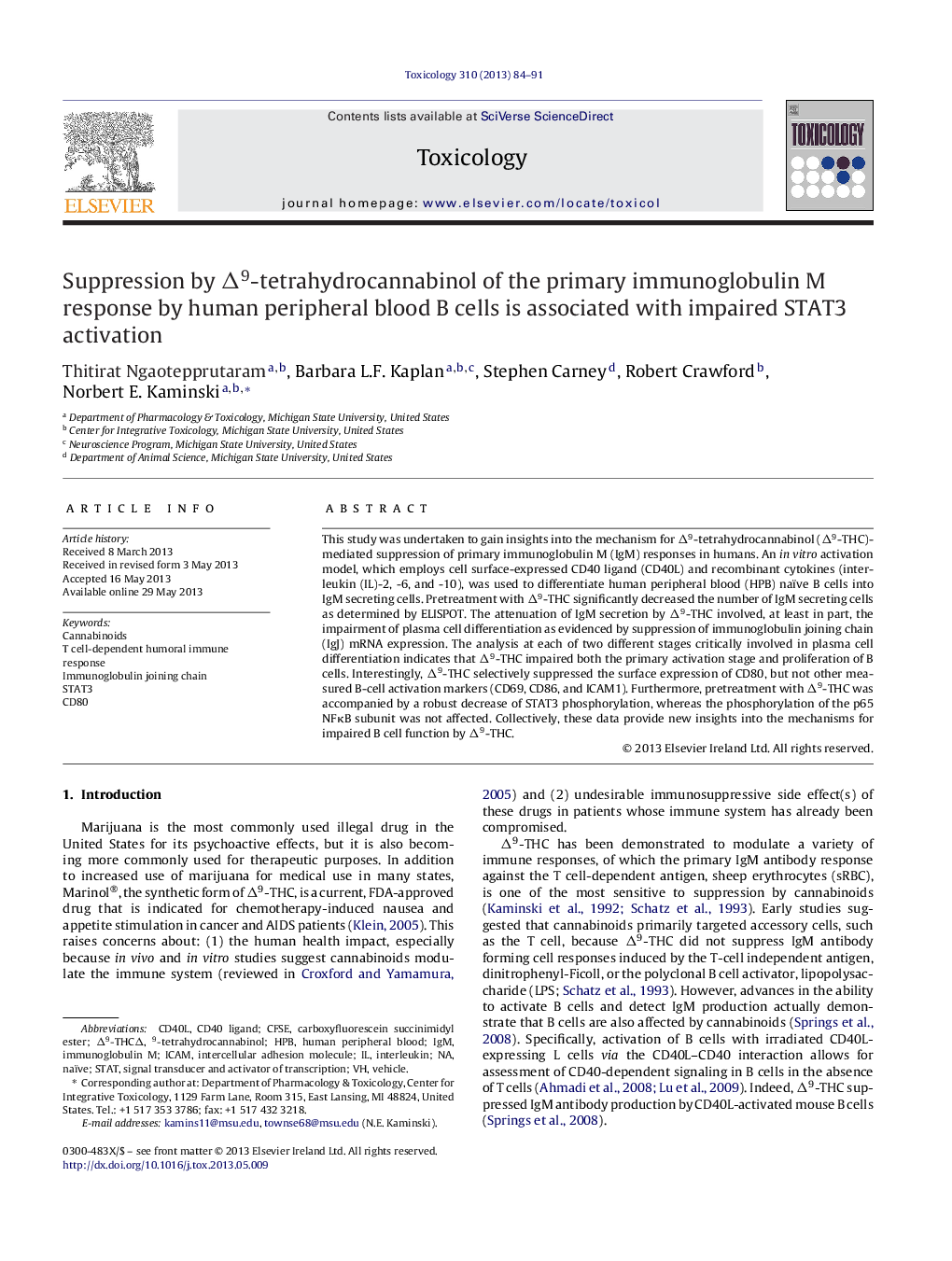| Article ID | Journal | Published Year | Pages | File Type |
|---|---|---|---|---|
| 2595633 | Toxicology | 2013 | 8 Pages |
This study was undertaken to gain insights into the mechanism for Δ9-tetrahydrocannabinol (Δ9-THC)-mediated suppression of primary immunoglobulin M (IgM) responses in humans. An in vitro activation model, which employs cell surface-expressed CD40 ligand (CD40L) and recombinant cytokines (interleukin (IL)-2, -6, and -10), was used to differentiate human peripheral blood (HPB) naïve B cells into IgM secreting cells. Pretreatment with Δ9-THC significantly decreased the number of IgM secreting cells as determined by ELISPOT. The attenuation of IgM secretion by Δ9-THC involved, at least in part, the impairment of plasma cell differentiation as evidenced by suppression of immunoglobulin joining chain (IgJ) mRNA expression. The analysis at each of two different stages critically involved in plasma cell differentiation indicates that Δ9-THC impaired both the primary activation stage and proliferation of B cells. Interestingly, Δ9-THC selectively suppressed the surface expression of CD80, but not other measured B-cell activation markers (CD69, CD86, and ICAM1). Furthermore, pretreatment with Δ9-THC was accompanied by a robust decrease of STAT3 phosphorylation, whereas the phosphorylation of the p65 NFκB subunit was not affected. Collectively, these data provide new insights into the mechanisms for impaired B cell function by Δ9-THC.
